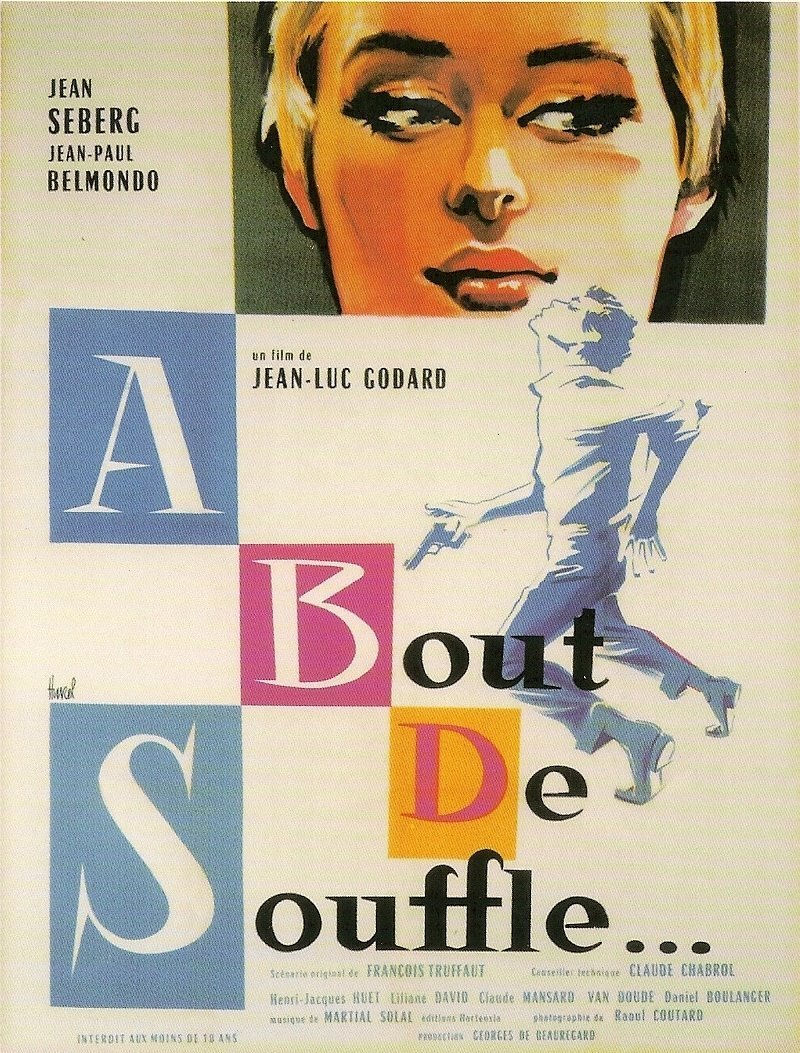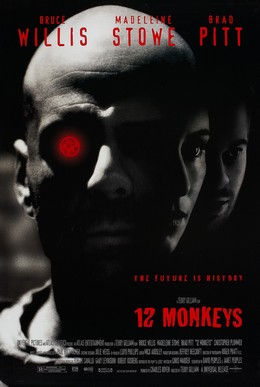Week 16
- Noah Jude
- Mar 2, 2017
- 6 min read
Breathless

I didn't quite enjoy this film. I understand that it was revolutionary at the time but there were things in this film that just made the film unenjoyable. It's not the poor quality dubbing or the bad camera quality that most people my age would find unsatisfying to watch. Its mainly that the narrative that lacks a direction and any excitement. The main character Michel had that American gangster persona. Smartly dressed, usually seen with a cigarette in his mouth and generally ''cool'' and admirable but I don't think its pulled off very well. The character lacks excitement or enthusiasm that makes him rather boring to watch. Michel is a lower tier criminal that is seeking to escape his current life in Paris. He uses sneaky and opportunistic methods to achieve his goal (when he stole his friends money in her apartment for example). Even though he's a criminal and a bad person, I couldn't help but to feel empathetic for him because he was a somewhat relatable character. He loved a woman that doesn't know if she loves him back which frustrates him a lot, getting to audience to relate and care about the character. Again, Ill say that even though I liked Michel as a character, he wasn't great. I did however like Patricia who is a New Yorker trying to make a living in Paris. She's a confident and independent sporting a short haircut outlining her from other more ''typical women'' which supports the plot because for Michel who's slept with plenty of other women after meeting her, can't seem to forget her and her crazy individuality. She wasn't the stereotypical woman you would find a Hollywood film at the time. She didn't cook, clear or obey a man.
I would like to bring up the biggest flaw in this film which is the hotel room scene. It's drawn out, long and made me lose interest in the film. The general editing in this film wasn't something I liked as well. The way this film was cut is very confusing, making the film hard to follow at times. Scenes just jump from one to another with no smooth transition that can be followed. It also lacked a shock factor, like when Michel shot the police officer, there was very little suspense and when it happened I didn't feel remotely shocked that he just shot a police officer because it was cut in such a fast paced way. Michel's death scene wasn't great either in my opinion, I couldn't really feel the impact of him being shot till the very end when Patricia looked down at him.
The film was also shot similar to a documentary. The camera was operated by hand and the filmmakers shot the film in public which did result in some awkward shots of people just staring at the camera.
In summary I can't give this film my stamp of approval despite its historical context. I've seen much better and revolutionary films from this era and I don't understand the hype around this film.
Les Quatre Cents Coups (1959)

I enjoyed this film more than Breathless as I thought it was more engaging than Breathless which was a film that I struggled watching as it wasn't one that was able to catch much of my attention. This film however was shot in a much more appealing fashion and less confusing fashion. I liked that I got a sense of geography with the shots which is something I didn't get with Breathless at all. The use of pan shots throughout the film gave me a good sense of where scenes are taking place.
Like Breathless, this film also challenges multiple notions stemming from Hollywood at the time. In Hollywood a woman would typically find herself staying at home, performing kitchen duties whilst the man is out working but in this film, both parties are working and the father also cooked his son dinner at one point undermining the stereotype that the woman has to cook dinner.
I found the whole father and mother dynamic in this film very interesting to unfold. At first, it was the mother who was strict, unfair and emotionally abusive towards Antoine whilst the Dad was less strict, relaxed and a bit of a jokey figure towards Antoine. I got the feeling that the father behaved this way to get somehow one up and get back at the mother because he has suspicions about her loyalty as she's home later constantly. The nice and bad dynamic switched when Antoine caught the mother cheating on the father. She then tried to shut him up by being nice to him and treating him with a visit to the cinema similar to what an interrogator would do using the good cop bad cop method. She only nice and rewarding towards Antoine to support her agenda and goal to shut him up, not out of the generosity of her heart. The father then starts being more angry towards Antoine. That switch occurs when he was looking for his magazine and first becomes apparent when Antoine causes a fire. In the fire scene you can see the distinct correlation of how ''relaxed'' the mother reacts and furiously the father reacts. This trend of behavior towards Antoine then continues throughout the rest of the film. When Antoine is sent to the juvenile correctional facility, the mother shows some sense of regret when she speaks to the commissar. Her natural motherly instinct comes to light as she wants him back, despite having said that she doesn't want him anymore. She also visited Antoine in the camp whilst the father never visits because he abandoned all hope. This might be down to Antoine not being his biological son. The film confronts authority, liberalism and tradition. The teacher is a perfect example of authority. He's controlling, instills rules and doesn't hesitate to exercise his authority when it's challenged (when Antoine refuses to leave the classroom for example). Antoine represents Liberalism throughout the movie. Doesn't follow the rules, does what he pleases (plays with his mothers eyelash curler in the beginning of the film for example). Tradition in this film is very much interlinked with Authority. More tradition equals more authority and control. For example, the parental approach towards Antoine for the time was very modern, both parents working etc. which the film implies is why Antoine is very liberal and out of line with rules. When the commissar asks the father if he hits his son, to which the father says no, the commissar then responds by saying that the ''old way does the job''. Again implying that tradition and authority are tied.
Antoine has always dreamed of seeing the ocean throughout the film which creates a dilemma for the audience when he finally sees the ocean at the end of the film. Does the ocean represent freedom, as he finally escaped the prison camp and finally got to see what he always wished for? or is it the end of the road as he cannot cross the ocean, whilst there's officers from the corrections facility in pursuit. Some people criticize ambiguous endings to being lazy but I personally really enjoy them if done properly. I get more from a film if it has no clear ending as the film has no ending and I am then left to ponder what will happen after the film. One example I can think of right now would be The Grey in which the viewer is left to decide wether Liam Neesons character will survive or not. This film has a much celebrated freeze shot ending. I think this ending shot is so celebrated because it perfectly catches the realization of Antoine, who know sees the ocean but is unsure what to think of it. Other films that also have a freeze shot ending would be the Rocky series.

Comparison between La Jatee and 12 Monkeys:

Both La Jatee and 12 monkeys are set in a doomsday scenario with someone that is a prisoner being experimented on by scientists to go back in the past to find an answer that could help humans resurface on earth. Both approach memory in the same way. Its about memory being used in alternate dimensions/ timelines to change the future. Its confusing at first but slowly starts making sense as both the character and the audience find more and more details to puzzle together as the film progresses. The films even start the exact same way with the intro being at an airport. The intro is a precursor to the ending sequence.
The underground facilities in both films give you an eerie sense of abandonment. They're gritty, scientists have control and perform tests on subjects and the surface is inhabitable.
La Jatee is a typical new French wave film, not being scared to follow typical conventions. It experimented and succeeded really well. The film feels real, the rise en scene makes the audience feel like it's the end of days with the dark underground bunker, the scientists whispering and pictures of people losing their sanity. It's really dark and definitely requires a person to watch it several times to grasp it its deep subtext.
12 Monkeys is a more dumbed down version, more suitable for the American audience. Filmmakers in Hollywood tend to simplify adaptations of foreign films so it suits a wider audience thus turning over more profit.
12 Monkeys was definitely much more comprehensible and easier to follow but that's also down to it being released 36 years after La Jatee allowing it to use better technology. It being a hollywood film also gave it a larger budget.
Comments